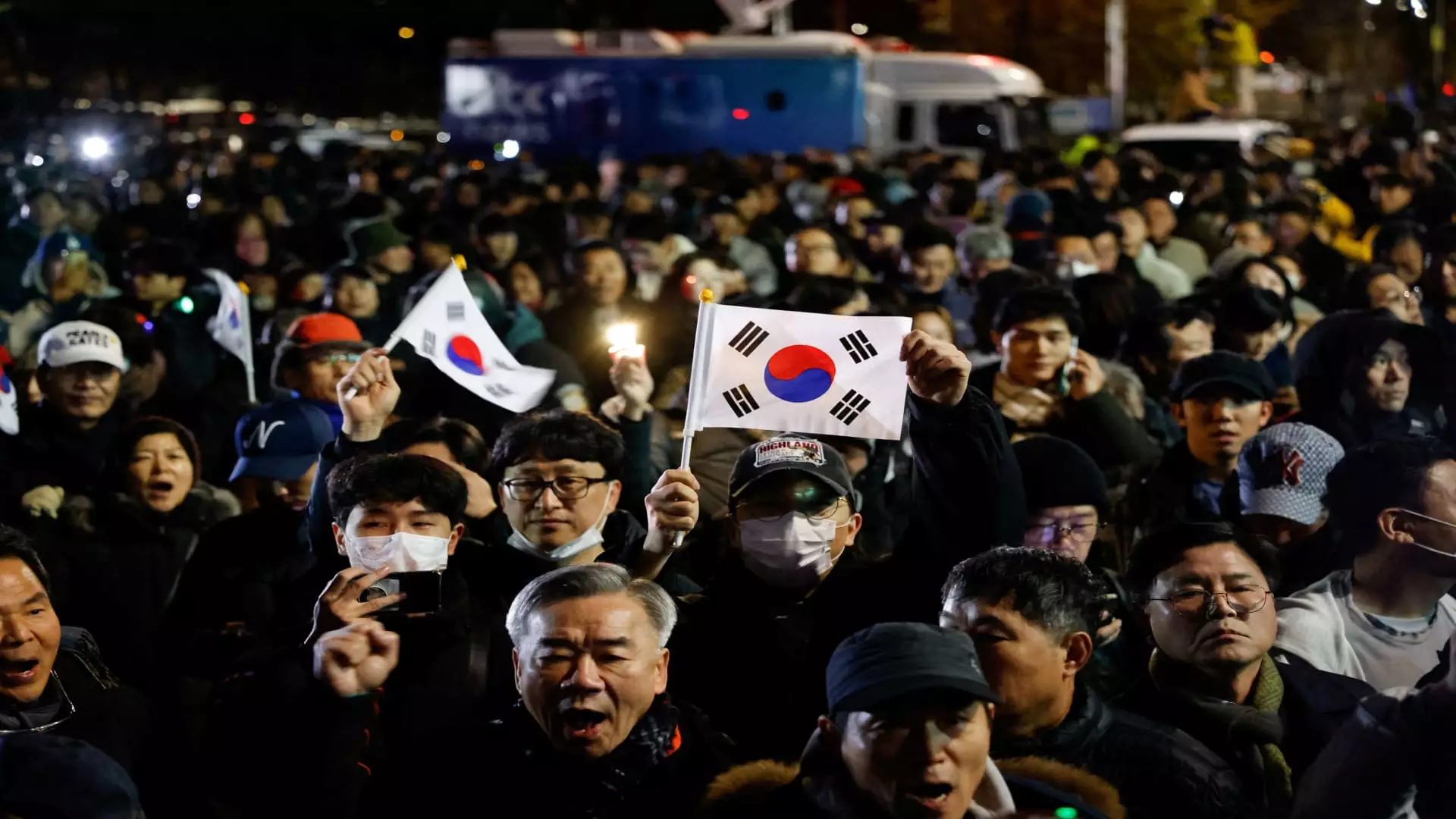In recent weeks, South Korea has found itself engulfed in a political maelstrom that has raised profound questions about governance, authority, and constitutional limits. President Yoon Suk Yeol’s attempt to impose martial law—an action that met with significant resistance both legislatively and publicly—has led to a series of unprecedented events, including a travel ban placed on Yoon himself. This article aims to unpack the ramifications of this unfolding crisis, the responses from various stakeholders, and the wider implications for South Korea’s political landscape and international standing.
Failed Martial Law and Political Fallout
The heart of the current crisis lies in Yoon’s ill-fated attempt to declare martial law on December 3, which he justified as a necessary measure against “anti-state forces.” However, after only six hours, Yoon withdrew the order following a parliamentary vote that occurred despite military pressure. This chaotic sequence of events not only spotlighted a government in distress but also raised serious concerns over the separation of powers and military control within the executive branch.
As Yoon faces scrutiny for this decision, the South Korean public and political entities are rallying for greater accountability. Calls for Yoon’s resignation have intensified, and the burgeoning dissent among senior military officials indicates an extraordinary breakdown in leadership unity. This discontent signals a broader crisis of confidence in Yoon’s administration and raises the specter of a political vacuum as rival factions and the opposition party capitalize on the disarray.
Yoon Suk Yeol’s own political party, the People Power Party (PPP), has taken a proactive approach amidst growing pressures. The establishment of a task force aimed at managing Yoon’s “orderly early resignation” underscores the urgency of stabilizing a fragmented political landscape. The task force’s creation illustrates an acknowledgment within the PPP that Yoon’s continued leadership may be untenable, indicating a pivot toward pragmatic governance as they navigate the crisis.
Furthermore, the party’s decision to temporarily delegate presidential responsibilities to Prime Minister Han Duck-soo is contentious. This delegation raises fundamental questions about constitutional legitimacy, especially since the Prime Minister is not elected by public vote but appointed by the President. Legal experts have pointed out the challenges this arrangement poses, particularly regarding the Prime Minister’s ability to act in a capacity typically reserved for an elected head of state.
One of the more alarming developments in this crisis is the notable dissent among military officials. The commander of South Korea’s special forces publicly distanced himself from the controversial order to intervene in parliamentary proceedings, claiming he acted under directives from the former defense minister. This declaration not only illustrates the complicity of military leadership but also indicates a potential rift that could undermine military cohesion.
Public sentiment has quickly shifted—protests erupted in response to Yoon’s martial law proclamation, indicating a profound commitment among citizens to uphold democratic ideals. As popular mobilization against Yoon’s administration intensifies, the confidence of ordinary South Koreans in their government is at a precarious juncture.
The crisis unfolding in South Korea comes at a particularly sensitive time within the region. The specter of North Korea’s provocative military actions amidst its burgeoning relationship with Russia raises alarming security concerns. The United States, a vital ally, expressed deep apprehension regarding the stability of the South Korean government and the implications of martial law on democratic processes.
U.S. Secretary of Defense Lloyd Austin’s cancellation of a planned visit to South Korea and Secretary of State Antony Blinken’s interpersonal communications with his South Korean counterpart reflect the global implications of domestic instability. The geopolitical reality is fraught with uncertainty, exemplified by North Korea’s military engagements that further strain regional security.
As South Korea stands at this critical juncture, the outcomes of President Yoon Suk Yeol’s leadership crisis will undoubtedly have lasting repercussions on the nation’s political landscape, military unity, and international relationships. The challenges of restoring public confidence amid rising dissent and the potential normative shifts in executive authority encapsulate a transformative moment for the country. Only time will reveal whether South Korea can recalibrate its political apparatus to navigate this turbulence or whether it will plunge deeper into crisis, ultimately redefining its democratic fabric.

Leave a Reply